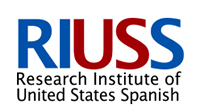EDITOR’S NOTE
Dear Reader,
With the publication of RIUSS Newsletter we present new ideas that converge around the creation of the Research Institute of United States Spanish or are intimately connected to its vision and mission, as in the article by Professor Nino-Murcia. We think of this first issue as a baseline of fundamental ideas that we wish to share with all our readers who are involved with communicating in Spanish in the United States—while most of you may be translators and interpreters, there are also many others who are stakeholders in a variety of capacities. Thus, we present four academic articles that show in depth different aspects of our principles and methodology around the concept of translation-as-effective-communication in the American bilingual society.
The article by Maria Cornelio about the “bilingual expert” may well be considered a case study into a broadly-disseminated misconception that many companies and organizations have about the ability of bilingual individuals to review professional translations. It is also a good example of evidence-based research. We trust it may help some of you to reflect about this type of situation and take a new approach to evaluating translated documents.
Translation Equivalence in the Bilingual Society points out the variable bilingual status of Spanish-speakers in the United States. Together with other conditions, such variability affects the use of the Spanish language in ways that are unique to this experience. The article also lays out an unprecedented working program aimed at two major issues:
- the challenges of addressing such a complex readership, and
- attaining an equivalent of plain language to broaden the reach of vitally-needed
information and communication in Spanish.
In RIUSS and the role of translation in the Spanish of the United States (in Spanish), Professor Francisco Marcos-Marín provides a comprehensive overview which interconnects the needs of the bilingual society with a new approach to implementing effective communication through research and plain language.
Varieties and characteristics of Spanish used in the translation of informative medical-healthcare texts intended for Spanish speakers in the United States (in Spanish), Margarita Calvo Armijo’s PhD thesis presents a comprehensive research project of the translation of medical-healthcare documents by US-based translators. Her detailed study highlights the importance of performing parallel-corpus analysis and derived surveys, thus illustrating RIUSS-proposed methodology.
Professor Nino-Murcia’s article on linguistic asymmetries in a bilingual society addresses the challenges the U.S. legal system faces in exchanges with nonnative speakers of English.
We strongly believe that our mission—to explore and open new research-based views and practices in communicating with US Hispanic readers—should be constantly nourished by maintaining an active dialogue with our RIUSS members. We also expect to be challenged by you, as some of our proposals may go against accepted principles. We invite you to contact us at editor@riuss.org and send us your feedback and/or questions.
